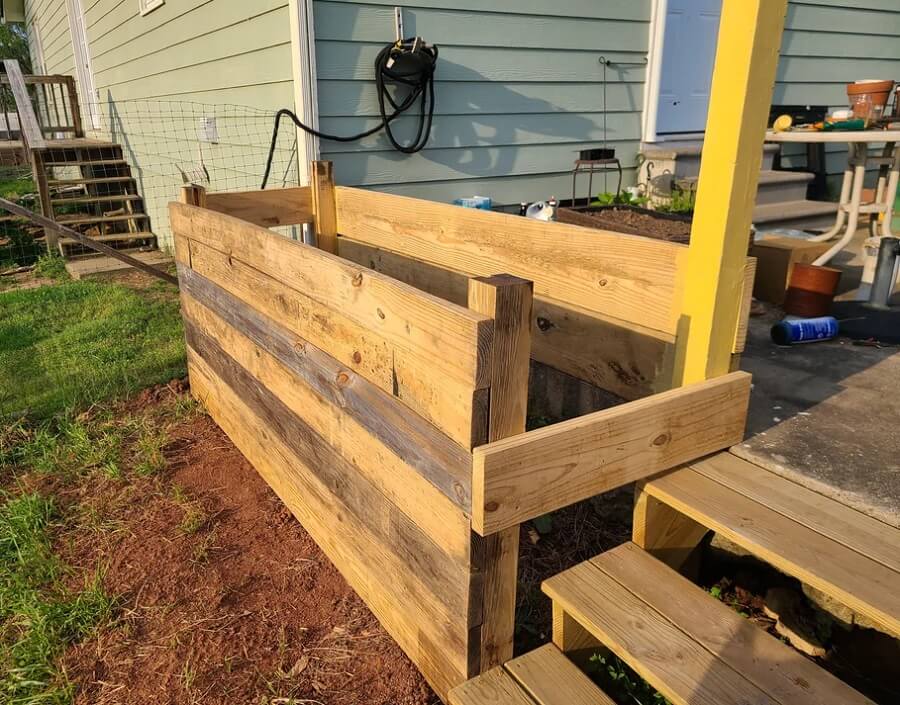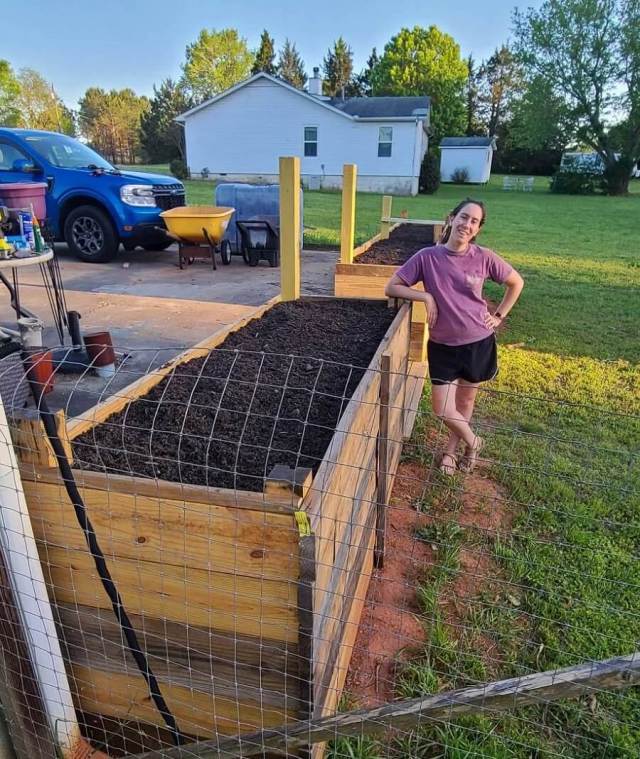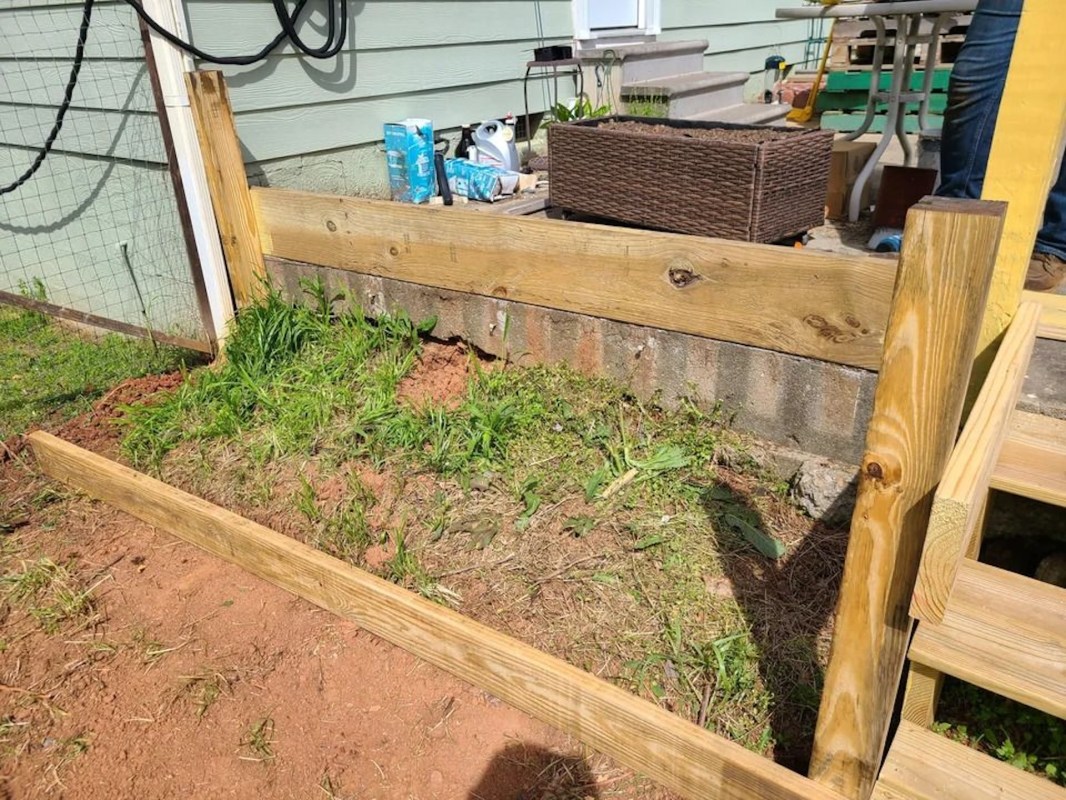A medieval technique for a self-irrigating and self-fertilizing garden has been passed down for generations, allowing modern-day gardeners to reap the benefits. One Redditor put it to the test and could not have been happier with the results.
The scoop
The original poster showed the progression of replacing their old picket fence with a raised garden in the r/gardening subreddit.
"There was a small little picket fence in this area that served to separate the driveway from the back yard. It was a bit run down, so we decided to modernize it with raised beds!" they wrote.


After tearing out the original fencing, the OP browsed Facebook listings and garage and woodshop sales to reduce the cost of wood for the new structure.
They then coated the inside of the wood with a nontoxic sealant to prevent water damage and filled the seams and other imperfections with outdoor-rated silicone.
After completing the framework of the raised bed, the Redditor used a centuries-old German and European gardening method called hügelkultur, which translates to mound culture or hill culture.
The technique calls for a foundation of layers of wood and organic materials, so the OP used partially broken-down logs and limbs as the base and stacked wood chips, dried leaves, lawn clippings, and topsoil on top.
They also mentioned planting cantaloupes and watermelons in the garden and adding an arbor over the stairs.
"Probably going to amend with some more soil as it settles, but we're super stoked about these," they added.
How it's helping
Hügelkultur can create a sustainable garden while minimizing the amount of watering and fertilization needed and, thus, the amount of money invested in healthy crops.
The financial savings could be twofold since practicing hügelkultur to start a fruit and vegetable garden can help reduce the costs of buying produce. Meanwhile, the mere act of gardening is correlated with healthier diets and improved physical and mental well-being.
It's not just the individual that benefits from gardening, either, as the environmental impact of relying less on mass-produced, store-bought, and globally shipped produce can cut more than 50 pounds of planet-warming CO2 pollution every year.
What everyone's saying
The raised garden earned praise from the comment section.
"It's so perfect. When you plant you don't have to bend. And when you harvest you don't need a step ladder. You get the best of both worlds!" one person wrote.
"My wallet cried after looking at this but it's very nice," another said.
Join our free newsletter for easy tips to save more, waste less, and help yourself while helping the planet.









